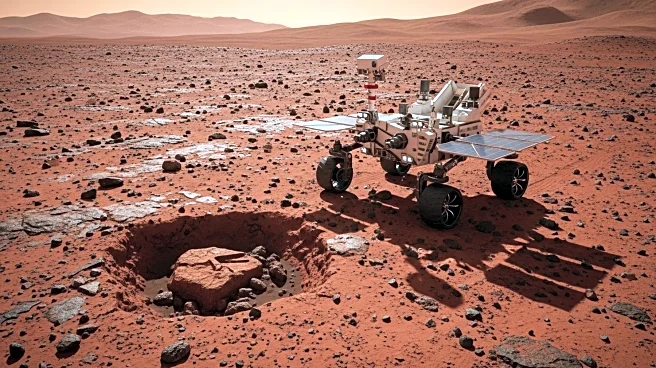What's Happening?
NASA's Perseverance rover has discovered a rock sample on Mars, named 'Sapphire Canyon,' that shows potential signs of ancient life. The sample was collected from Jezero Crater, an area that was once a riverbed, suggesting it may have supported life billions of years ago. Scientists have identified biosignatures, which are chemical indicators of life, in the sample. However, these findings do not confirm the existence of life on Mars today, and further analysis is required to rule out non-biological origins.
Why It's Important?
This discovery is significant as it increases the likelihood of finding evidence of past life on Mars, which could reshape our understanding of the planet's history and its potential to harbor life. The presence of biosignatures suggests that Mars may have had conditions suitable for life, similar to early Earth. This could have implications for future Mars exploration missions and the search for extraterrestrial life, potentially influencing scientific priorities and funding.
What's Next?
NASA plans to conduct more tests and collaborate with scientists worldwide to verify the findings and explore the possibility of life on Mars. The rover will continue to collect samples, and future missions may focus on areas with similar geological features. The scientific community is eager to analyze the data further, which could lead to new insights into Mars' geological and biological history.








